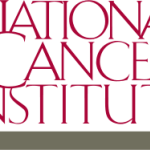- Settore: Government; Health care
- Number of terms: 6957
- Number of blossaries: 0
- Company Profile:
The National Cancer Institute (NCI) is part of the National Institutes of Health (NIH), which is one of 11 agencies that compose the Department of Health and Human Services (HHS). The NCI, established under the National Cancer Institute Act of 1937, is the Federal Government's principal agency for ...
An auristatin analogue immunoconjugate directed against Eph receptor A2 (EphA2)-positive cancer cells with potential antineoplastic activity. Anti-EphA2 monoclonal antibody-MMAF immunoconjugate MEDI-547 is generated by conjugating the fully human IgG1 anti-EphA2 monoclonal antibody (1C1) to the small-molecule microtubule inhibitor monomethyl auristatin phenylalanine (MMAF) via the stable linker maleimidocaproyl (mc) (1C1-mcMMAF). The monoclonal antibody moiety of this agent selectively binds to cells expressing the EphA2 receptor. After internalization and enzymatic cleavage of the immunoconjugate within the tumor cell cytosol, free MMAF binds to tubulin and inhibits its polymerization, which may result in G2/M phase arrest and tumor cell apoptosis. The cell-surface receptor EphA2, a member of the ephrin family of receptor tyrosine kinases (RTKs) involved in mammalian development, is overexpressed by a variety of different cancer cell types.
Industry:Pharmaceutical
An autologous dendritic cell (DC) cancer vaccine with potential immunostimulatory activity. Anti-CTLA4 MoAb RNA/GITRL RNA-transfected DC vaccine is prepared by transfecting DCs with RNAs encoding humanized heavy and light chains of the anti-CTLA4 (cytotoxic T-Lymphocyte-Associated Antigen 4) monoclonal antibody and tumor necrosis factor (ligand) superfamily, member 18 (TNFSF18 or GlTRL); expression of anti-CTLA4 blocks the inhibitory effect of CTLA4 on the activation of T-lymphocytes, while expression of GlTRL modulates T lymphocyte survival in peripheral tissues. Co-vaccination of this vaccine with melanoma antigen specific vaccine may eliminate the adverse effects associated with systemic administration of immune modulators, while also enhancing vaccine-induced immune responses.
Industry:Pharmaceutical
An autologous dendritic cell (DC) cancer vaccine with potential immunostimulatory activity. Anti-CTLA4 MoAb RNA-transfected autologous DC vaccine is prepared by transfecting DCs with RNAs encoding humanized heavy and light chains of the anti-CTLA4 (cytotoxic T-Lymphocyte-Associated Antigen 4); expression of anti-CTLA4 blocks the inhibitory effect of CTLA4 on the activation of T-lymphocytes. Co-vaccination of this vaccine with melanoma antigen specific vaccine may eliminate the adverse effects associated with systemic administration of immune modulators, while also enhancing vaccine-induced immune responses.
Industry:Pharmaceutical
An autologous dendritic cell (DC) cancer vaccine with potential immunostimulatory activity. GITRL RNA-transfected autologous DC vaccine is prepared by transfecting DCs with RNAs encoding tumor necrosis factor (ligand) superfamily, member 18 (TNFSF18 or GlTRL); expression of GlTRL results in modulating T lymphocyte survival in peripheral tissues. Co-vaccination of this vaccine with melanoma antigen specific vaccine may eliminate the adverse effects associated with systemic administration of immune modulators, while also enhancing vaccine-induced immune responses.
Industry:Pharmaceutical
An autologous dendritic cell (DCs) vaccine targeting prostate cancer with immunostimulating activity. The autologous DC vaccine is prepared via transfecting DCs with mRNAs extracted from primary prostate cancer tissue, and mRNAs of human telomerase reverse transcriptase (hTERT) and survivin. Upon administration, this DC vaccine may elicit a potent cytotoxic T-cell (CTL) response against prostate cancer cells, resulting in tumor cell death. Both hTERT and survivin are essential in neoplastic growth, and are considered to be universal tumor antigens.
Industry:Pharmaceutical
An autologous dendritic cell vaccine with antineoplastic property. Dendritic cells harvested from cancer patients are pulsed with human gp100 melanoma antigen and MART-1 antigen (a melanoma antigen recognized by T-cells); both antigens are up-regulated in melanomas. Vaccination with this vaccine may elicit the host immune response against MART-1 or gp100 expressing cells.
Industry:Pharmaceutical
An autologous dendritic cell vaccine with potential immunostimulatory activity. Dendritic cells harvested from a prostate cancer patient are transfected with the mRNA encoding for prostate specific antigen (PSA), a tumor marker secreted by prostatic epithelial and ductal cells. When reintroduced back to the patient, these PSA RNA pulsed autologous dendritic cells may elicit a cytotoxic T-cell (CTL) response against PSA-positive prostate cancer cells.
Industry:Pharmaceutical
An autologous lung cancer vaccine consisting of patient-specific lung cancer cells genetically modified to secrete granulocyte-macrophage colony stimulating factor (GM-CSF), an immunostimulatory cytokine. GM-CSF modulates the proliferation and differentiation of a variety of hematopoietic progenitor cells with some specificity towards stimulation of leukocyte production and may reverse treatment-induced neutropenias. This agent also promotes antigen presentation, up-regulates antibody-dependent cellular cytotoxicity (ADCC), and increases interleukin-2-mediated lymphokine-activated killer cell function and may augment host antitumoral immunity. For safety, cells are irradiated prior to vaccination.
Industry:Pharmaceutical
An autologous tumor cell vaccine containing chronic lymphocytic leukemia (CLL) B cells transduced with an adenoviral vector carrying chimeric CD154 (ad-CD154) with potential antineoplastic activity. Administration of autologous ad-CD154 transduced CLL B cells may result in increases in the numbers of leukemia-specific CD4+ T cells and high serum-levels of IL-12 and IFN-gamma. Due to ligation of CD154 to CD40 on CLL cells, this agent may induce CLL cells to express the proapoptotic molecule Bid and death receptors CD95 (Fas) and DR5, rendering CLL B cells first resistant and then sensitive to Fas-mediated apoptosis. In addition, autologous ad-CD154 transduced CLL B cells may induce MHC class I-dependent cytotoxic T lymphocyte (CTL) responses against autologous leukemia cells. CD154 is a type II membrane glycoprotein and ligand for CD40; both molecules are important in cognate co-stimulatory cell-cell interactions.
Industry:Pharmaceutical
An autologous tumor cell vaccine containing irradiated breast cancer cells transfected with the granulocyte macrophage-colony-stimulating factor (GM-CSF) gene with potential antineoplastic activity. Autologous breast cancer cells are transduced ex vivo with an adenovirus vector encoding the GM-CSF gene and irradiated and then reintroduced into the patient. Upon repeated subcutaneous administration of the vaccine, autologous GM-CSF-secreting breast cancer cells secrete GM-CSF, which may stimulate a tumor-specific cytotoxic T-lymphocyte (CTL) response.
Industry:Pharmaceutical
